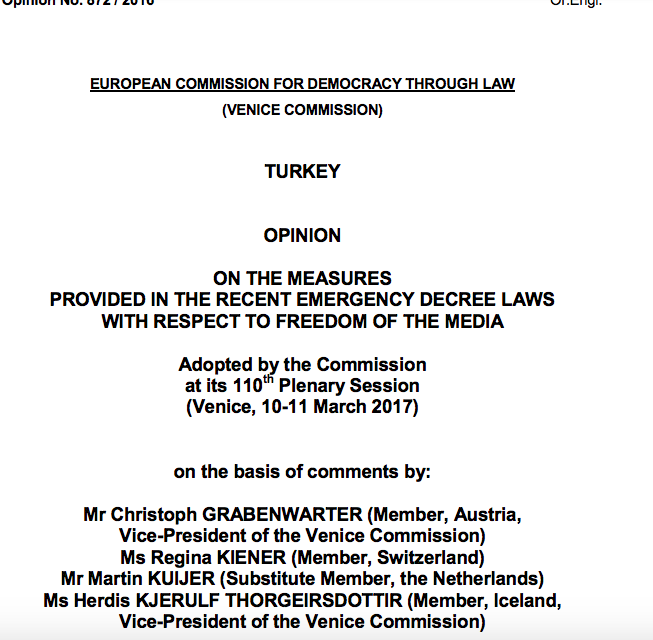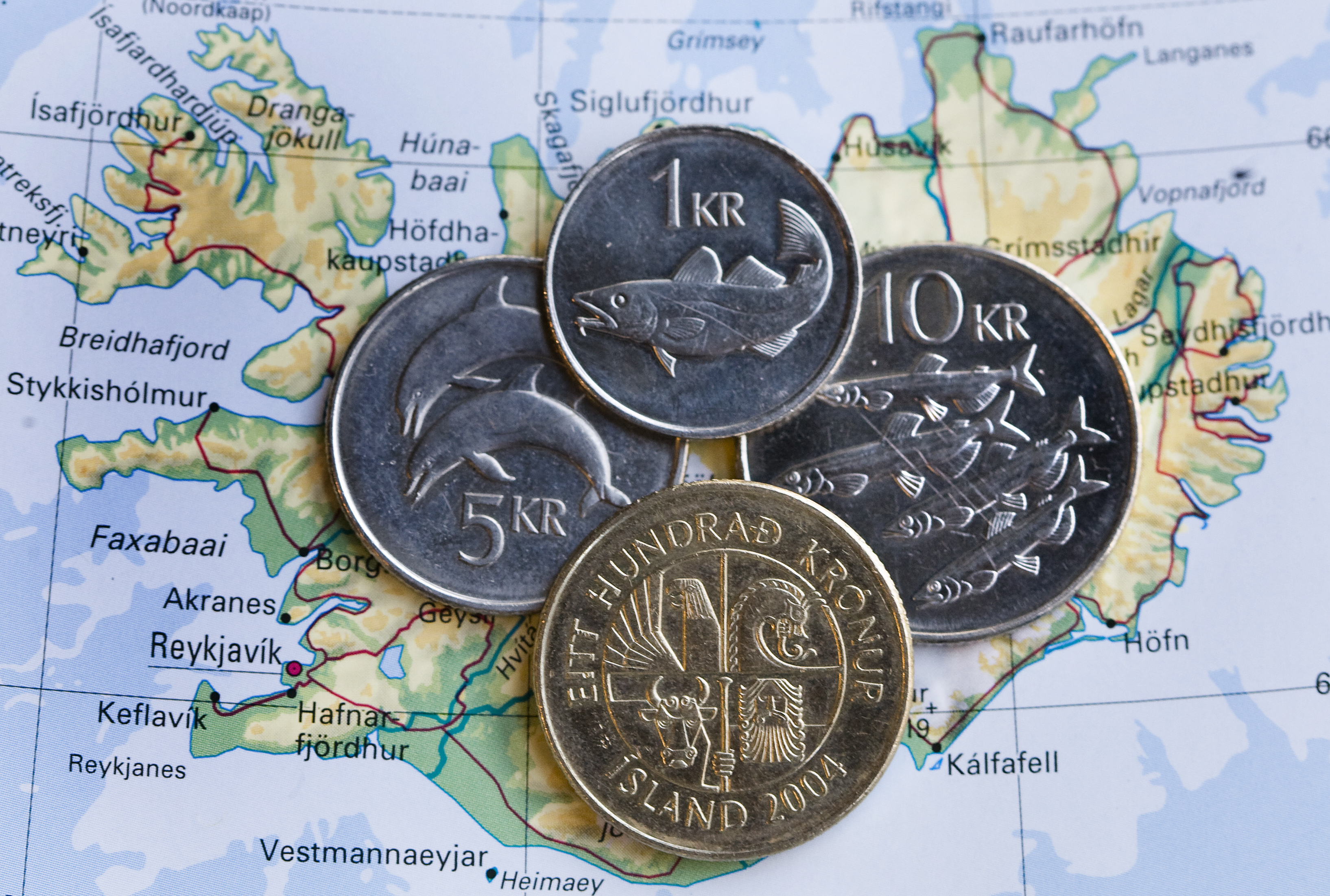
by Herdís Þorgeirsdóttir | 17.03.2017 | Fréttir

Effective as of 14 March 2017, Iceland has lifted capital controls imposed as a stabilising measure during the country’s financial crisis in 2008. This represents the completion of Iceland’s return to international financial markets.
When the financial and currency crisis hit in 2008, Iceland was faced with an unprecedented balance of payment challenge, following years of significant cross-border bank flows and pre-crisis capital inflow surges. This prompted Iceland, with the approval of the International Monetary Fund, to take protective measures in the form of capital controls to prevent excessive capital flight and stabilise the Icelandic economy.
Even though the free flow of capital is one of the fundamental freedoms of the EEA Agreement, the Agreement allows the Member States to take temporary protective measures when facing serious difficulties. The measures and all subsequent amendments to them were notified by Iceland to the EEA Joint Committee in accordance with the Agreement.
These measures reduced the impact on foreign holders of króna, protecting both Icelanders and non-residents from further shock. This intervention in effect prevented a widespread economic crash, shielding resident savings and pension funds from severe depreciation. The removal of capital controls represents the completion of Iceland’s return to international financial markets, according to a statement by Iceland’s Ministry of Foreign Affairs of 12 March 2017.
The removal of capital controls has been supported by updates to rules on foreign exchange and special reserve requirements for new foreign currency inflows.
Iceland sent a notice of the process of lifting capital controls to the EEA Joint Committee, and Icelandic Ambassador to the EU, Ms Bergdís Ellertsdóttir, briefed the EEA Joint Committee at its meeting on 17 March, stating “on 14 March, new Rules on Foreign Exchange took effect granting exemptions in full from nearly all restrictions of the Foreign Exchange Act. The remaining restrictions are minimal and will affect few. Aside from these restrictions the capital account has been fully liberalized for individuals and business”.
Mr Benedikt Jóhannesson, Icelandic Minister of Finance and Economic Affairs, said earlier this week that “Iceland’s careful, measured approach to lifting capital controls was developed and approved with domestic and international support. As a result, our diversified economy is larger than ever before and expected to continue to grow at a robust pace this year. Our sustainable fisheries, tourism, tech start-ups and renewable energy sectors have grown rapidly, providing a strong backbone to our economy. This move is the critical first step in the new Government’s strategy for the country’s financial future, and we can now look ahead with a healthier, stronger and more diversified economy.”
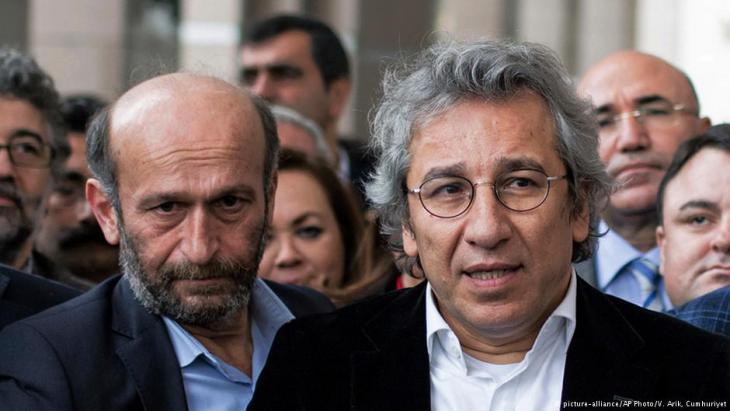
by Herdís Þorgeirsdóttir | 15.02.2017 | Fréttir
Skýrsla mannréttindafulltrúa Evrópuráðsins:

Frelsi fjölmiðla nær ekkert. Blaðamennirnir Can Dundar og Erdem Gul á dagblaðinu Cumhuriyet voru handteknir 2015 fyrir umfjöllun um vopnaflutning stjórnvalda til Sýrlands.
Svigrúmið fyrir lýðræðislega umræðu er orðið nær sem ekkert í Tyrklandi eftir fjölda handtökur og ákærur gefnar út á hendur blaðamönnum, kennurum, þingmönnum og venjulegum borgurum.
“The space for democratic debate in Turkey has shrunk alarmingly following increased judicial harassment of large strata of society, including journalists, members of parliament, academics and ordinary citizens, and government action which has reduced pluralism and led to self-censorhip. This deterioration came about in a very difficult context, but neither the attempted coup, nor other terrorist threats faced by Turkey can justify measures that infringe media freedom and disavow the rule of law to such an extent. The authorities should urgently change course by overhauling criminal legislation and practice, re-develop judicial independence and reaffirm their commitment to protect free speech” said today Nils Muižnieks, Council of Europe Commissioner for Human Rights, while publishing a Memorandum on freedom of expression and media freedom in Turkey based on the findings of two visits to the country that he conducted in April and September 2016.
The Commissioner regrets that tangible progress concerning media freedom and freedom of expression which was painstakingly achieved by Turkey in co-operation with the Council of Europe, was halted and reversed in recent years, leading to an already alarming situation at the time of the Commissioner’s visit in April 2016. “In particular, the overly wide application of the concepts of terrorist propaganda and support for a terrorist organisation, including to statements and persons that clearly do not incite violence, and its combination with an overuse of defamation, has put Turkey on a very dangerous path. Legitimate dissent and criticism of government policy is vilified and repressed, thus shrinking the scope of democratic public debate and polarising society.” This situation has significantly worsened under the on-going state of emergency which confers almost limitless discretionary powers to the Turkish executive to apply sweeping measures, including against the media and NGOs, without any evidentiary requirement, in the absence of judicial decisions and on the basis of vague criteria of alleged “connection” to a terrorist organization.

by Herdís Þorgeirsdóttir | 10.02.2017 | Fréttir
 Vinna Feneyjanefndar, stjórnskipulegs álitsgjafa hinna 47 aðildarríkja Evrópuráðsins, hefur verið mikið í fréttum í Tyrklandi í kjölfar þess að neyðarlög voru sett í landinu. Herdís Þorgeirsdóttir, varaforseti Feneyjanefndar, fór fyrir sendinefnd í Ankara í febrúar þar sem nefndin ræddi við embættismenn, stjórnmálamenn, blaðamenn, dómara o.fl. vegna fyrirhugaðra breytinga á stjórnskipun landsins; vegna ástandsins á fjölmiðlamarkaði þar sem hátt í 200 fjölmiðlum hefur verið lokað á grundvelli neyðarlaga. Þúsundum opinberra starfsmanna hefur verið vikið frá störfum; hundruð blaðamanna sitja í fangelsi og almennur ótti ríkir í landinu.
Vinna Feneyjanefndar, stjórnskipulegs álitsgjafa hinna 47 aðildarríkja Evrópuráðsins, hefur verið mikið í fréttum í Tyrklandi í kjölfar þess að neyðarlög voru sett í landinu. Herdís Þorgeirsdóttir, varaforseti Feneyjanefndar, fór fyrir sendinefnd í Ankara í febrúar þar sem nefndin ræddi við embættismenn, stjórnmálamenn, blaðamenn, dómara o.fl. vegna fyrirhugaðra breytinga á stjórnskipun landsins; vegna ástandsins á fjölmiðlamarkaði þar sem hátt í 200 fjölmiðlum hefur verið lokað á grundvelli neyðarlaga. Þúsundum opinberra starfsmanna hefur verið vikið frá störfum; hundruð blaðamanna sitja í fangelsi og almennur ótti ríkir í landinu.
Sjá frétt CNN í Tyrklandi um fund okkar með stjórnvöldum: http://www.cnnturk.com/video/turkiye/venedik-komisyonu-uyeleri-mecliste
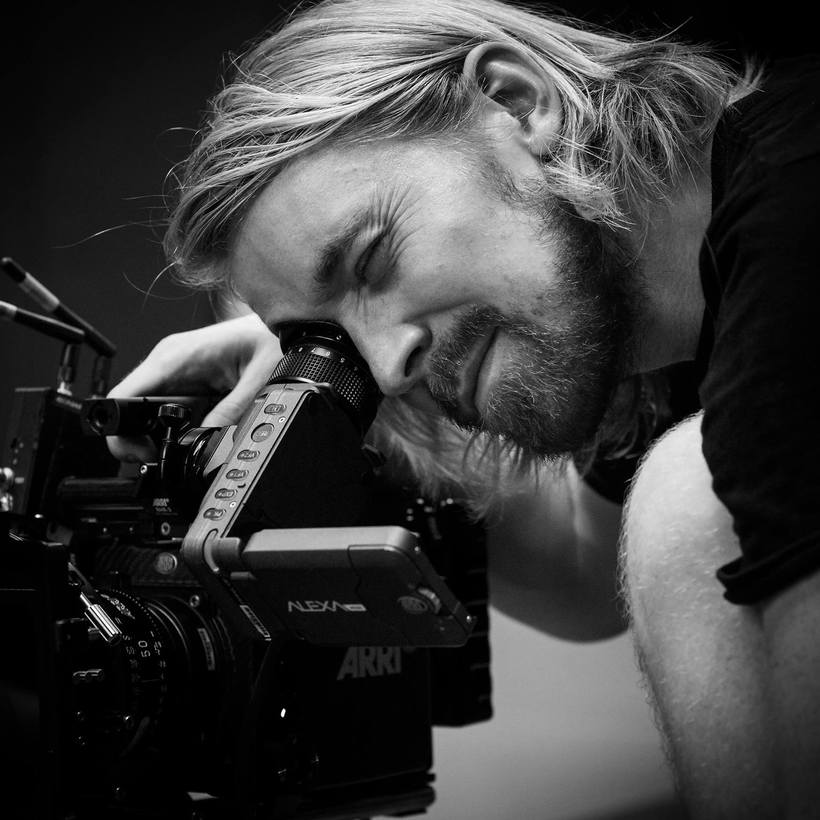
by Herdís Þorgeirsdóttir | 16.01.2017 | Fréttir
 Viðtal í Smartlandi Morgunblaðsins við kvikmyndaleikstjórann á bak við EAST OF MY YOUTH myndbandið (Erlendur Sveinsson). Marta María Jónasdóttir lyftir ekki bara Mogganum upp með skemmtilegheitum heldur æfir hún lyftingar og hefur náð hörku árangri.
Viðtal í Smartlandi Morgunblaðsins við kvikmyndaleikstjórann á bak við EAST OF MY YOUTH myndbandið (Erlendur Sveinsson). Marta María Jónasdóttir lyftir ekki bara Mogganum upp með skemmtilegheitum heldur æfir hún lyftingar og hefur náð hörku árangri.
Sjá hér.
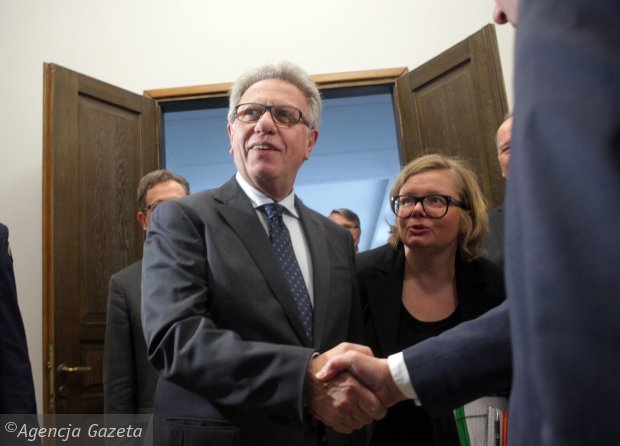
by Herdís Þorgeirsdóttir | 16.01.2017 | Fréttir

Í viðtali við pólsku sjónvarpsstöðina TV Polsat lýsti forseti Feneyjanefndar Evrópuráðsins, Gianni Buquicchio, yfir áhyggjum af þeirri þróun í Póllandi að stjórnvöld eru að reyna að þvinga æðsta dómstól landsins til undirgefni pólitískan meirihluta. Þingið hefur sett umdeild lög, sem Feneyjanefndin hefur gagnrýnt en þau vega að sjálfstæði æðsta dómstóls landins og ógna réttarríkinu. Nýr forseti stjórnlagadómstólsins var kjörinn eftir vafasömum leiðum; varaforseti dómstólsins var sendur í frí o.s.frv. Hingað til hefur stjórnlagadómstóllinn í Póllandi gegnt lykilhlutverki í að standa vörð um mannréttindi og réttarríkið. Það vekur ugg að nú vinna stjórnvöld kerfisbundið að því að koma í veg fyrir að dómstóllinn geti gegnt því hlutverki sem honum er ætlað samkvæmt pólsku stjórnarskránni.
Hér fyrir neðan er yfirlýsing forseta Feneyjanefndar vegna ástands í Póllandi vegna versnandi stöðu æðsta dómstólsins í Póllandi.
I am worried about the worsening situation within the Constitutional Tribunal of Poland. Following the attempts to influence the work of the Tribunal by means of legislative amendments, which were criticised by the Venice Commission, practical steps are now taken with the apparent aim to ensure that the Tribunal act in accordance with the will of the current political majority:
• The new President of the Tribunal was elected on the basis of a questionable procedure;
• The new President delegated her powers to another judge who was elected on a legal basis that had been found unconstitutional by the Tribunal;
• The Vice-President of the Tribunal was sent on a vacation he had not asked for;
• The election of three sitting judges is challenged seven years after the election.
Hitherto the Constitutional Tribunal played a crucial role to ensure respect for human rights, the rule of law and democratic principles in Poland. It is alarming that it is systematically made impossible for the Tribunal to carry out this role assigned to it by the Polish Constitution.



